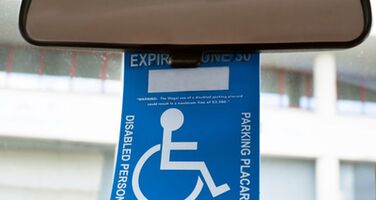
How Telemedicine Is Helping Disabled Drivers All Over the U.S.
Introduction
Telemedicine has revolutionized healthcare by providing remote consultations, diagnostics, and treatment options. This advancement has particularly benefited disabled drivers across the United States, offering them unprecedented access to medical services without the need for physical travel. This article explores the various ways telemedicine supports disabled drivers, its benefits, challenges, and future prospects.
The Evolution of Telemedicine
Telemedicine began as a means to deliver healthcare services to remote areas, leveraging technology to bridge geographical gaps. Over the years, it has evolved with advancements in communication technologies, becoming a mainstream mode of healthcare delivery. Today, telemedicine encompasses video consultations, remote monitoring, mobile health apps, and more, making healthcare accessible to a broader population, including disabled drivers.
Benefits of Telemedicine for Disabled Drivers
Increased Accessibility
- Disabled drivers often face mobility challenges that make visiting healthcare facilities difficult. Telemedicine removes these barriers, allowing them to access medical consultations from the comfort of their homes.
Convenience
- Telemedicine offers unparalleled convenience, enabling disabled drivers to schedule appointments that fit their schedules without the need to arrange transportation.
Cost Savings
- By eliminating the need for travel, telemedicine reduces transportation costs and the financial burden associated with frequent visits to healthcare providers.
Timely Medical Intervention
- Telemedicine allows for prompt medical consultations, which is crucial for managing chronic conditions and preventing complications that disabled drivers may experience.
Enhanced Continuity of Care
- Telemedicine facilitates regular follow-ups and consistent monitoring, ensuring that disabled drivers receive continuous and comprehensive care.
Improved Mental Health Support
- Disabled drivers can access mental health services through telemedicine, which is essential for addressing the psychological challenges that often accompany physical disabilities.
Case Studies: Telemedicine in Action
The Case of John: Managing Chronic Pain
- John, a disabled driver suffering from chronic pain, found it challenging to attend regular appointments. Telemedicine allowed him to consult with his pain specialist regularly, adjust his medication, and receive physical therapy guidance remotely.
The Story of Lisa: Mental Health Support
- Lisa, who experiences anxiety and depression, benefited from telemedicine by accessing virtual therapy sessions. This consistent mental health support improved her overall well-being and ability to manage daily activities.
Mike's Journey: Post-Surgery Rehabilitation
- After a major surgery, Mike needed regular physiotherapy. Telemedicine enabled him to receive remote physiotherapy sessions, monitor his progress, and adjust his rehabilitation plan without the need for physical visits.
Telemedicine Platforms and Technologies
Video Consultation Platforms
- Platforms like Doxy.me, Zoom for Healthcare, and Amwell provide secure and reliable video consultation services, making it easy for disabled drivers to connect with healthcare providers.
Remote Monitoring Devices
- Devices such as wearable fitness trackers, blood pressure monitors, and glucose monitors send real-time data to healthcare providers, facilitating remote monitoring and timely interventions.
Mobile Health Apps
- Apps like MyChart and Teladoc offer features like appointment scheduling, medication reminders, and access to medical records, enhancing the telemedicine experience for disabled drivers.
Electronic Health Records (EHR)
- EHR systems integrate with telemedicine platforms, ensuring seamless access to patient records and enabling informed decision-making during consultations.
Legal and Regulatory Considerations
Licensing and Credentialing
- Healthcare providers offering telemedicine services must be licensed in the states where their patients reside. This ensures that disabled drivers receive care from qualified professionals.
HIPAA Compliance
- Telemedicine platforms must comply with the Health Insurance Portability and Accountability Act (HIPAA) to protect patient privacy and secure medical data.
Reimbursement Policies
- Insurance companies and Medicare have specific reimbursement policies for telemedicine services. Understanding these policies is crucial for disabled drivers to ensure their consultations are covered.
Challenges and Solutions
Technological Barriers
- Disabled drivers may face challenges with technology access or literacy. Providing user-friendly platforms and offering technical support can mitigate these issues.
Insurance Coverage
- Not all telemedicine services are covered by insurance. Advocating for broader coverage and understanding existing policies can help disabled drivers access necessary services.
Quality of Care
- Ensuring that telemedicine provides the same quality of care as in-person visits is essential. Healthcare providers must be trained to deliver effective remote consultations and use advanced technologies to support their practice.
Accessibility Issues
- Telemedicine platforms must be accessible to individuals with various disabilities. Designing platforms with accessibility features like screen readers and voice commands can enhance usability for disabled drivers.
The Future of Telemedicine for Disabled Drivers
Integration with Emerging Technologies
- The integration of telemedicine with artificial intelligence (AI) and machine learning (ML) can enhance diagnostics, personalize treatment plans, and predict health outcomes for disabled drivers.
Expansion of Services
- Expanding telemedicine services to include specialties like dermatology, ophthalmology, and dentistry can provide comprehensive care for disabled drivers.
Policy Advancements
- Continued advocacy for telemedicine-friendly policies at the state and federal levels can improve access and coverage for disabled drivers.
Public Awareness and Education
- Increasing public awareness about the benefits of telemedicine and educating disabled drivers on how to use these services can drive higher adoption rates.
Conclusion
Telemedicine is transforming healthcare delivery, offering immense benefits to disabled drivers across the U.S. By increasing accessibility, providing convenience, reducing costs, and ensuring timely medical intervention, telemedicine is improving the quality of life for disabled drivers. As technology continues to advance and policies evolve, the future of telemedicine holds great promise for even greater support and care for this population.
References
- American Telemedicine Association. (2023). Telemedicine: The Future of Healthcare.
- Centers for Medicare & Medicaid Services. (2023). Telehealth Services.
- National Institute of Health. (2023). The Impact of Telemedicine on Chronic Disease Management.
- U.S. Department of Health and Human Services. (2023). HIPAA and Telehealth.
- Journal of Telemedicine and Telecare. (2023). Telemedicine for Disabled Populations.
This comprehensive article aims to provide an in-depth understanding of how telemedicine is revolutionizing healthcare for disabled drivers, highlighting real-life case studies, technological advancements, legal considerations, challenges, and future prospects.
.png)





